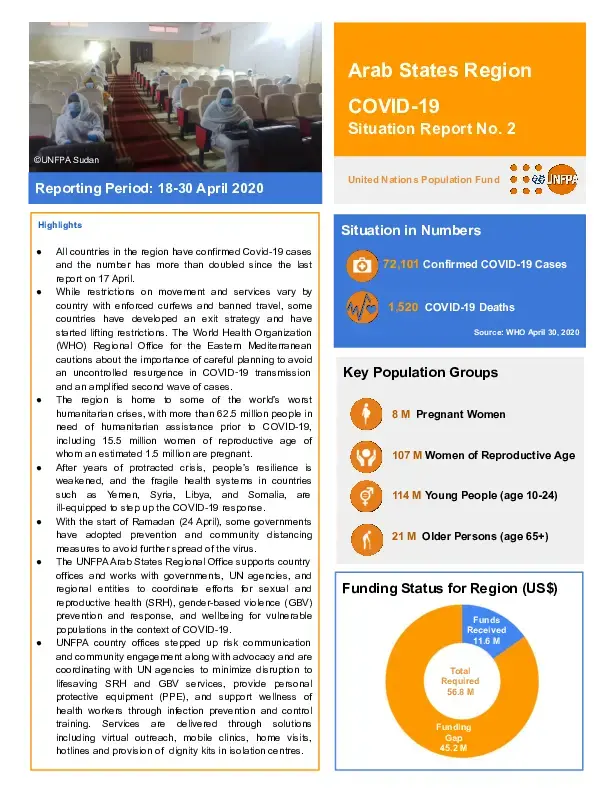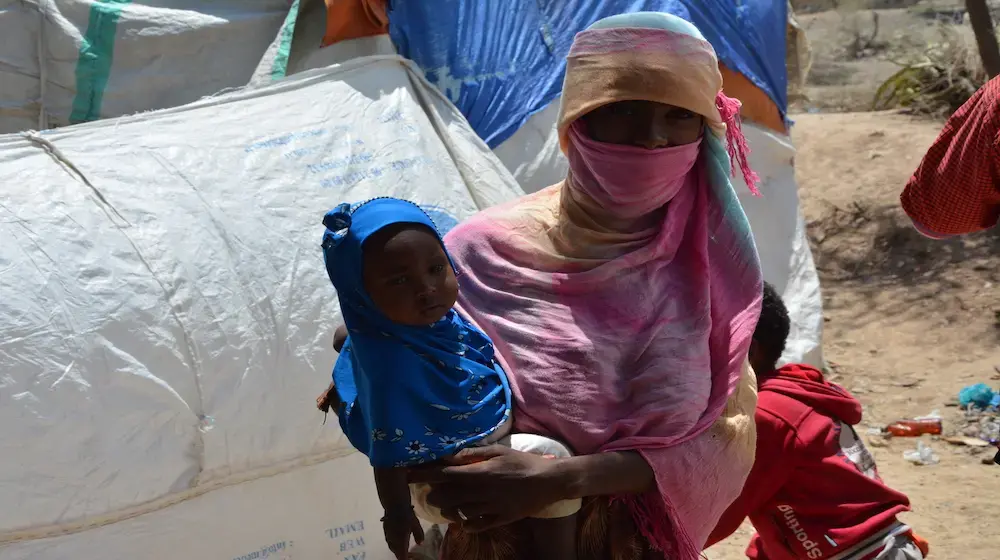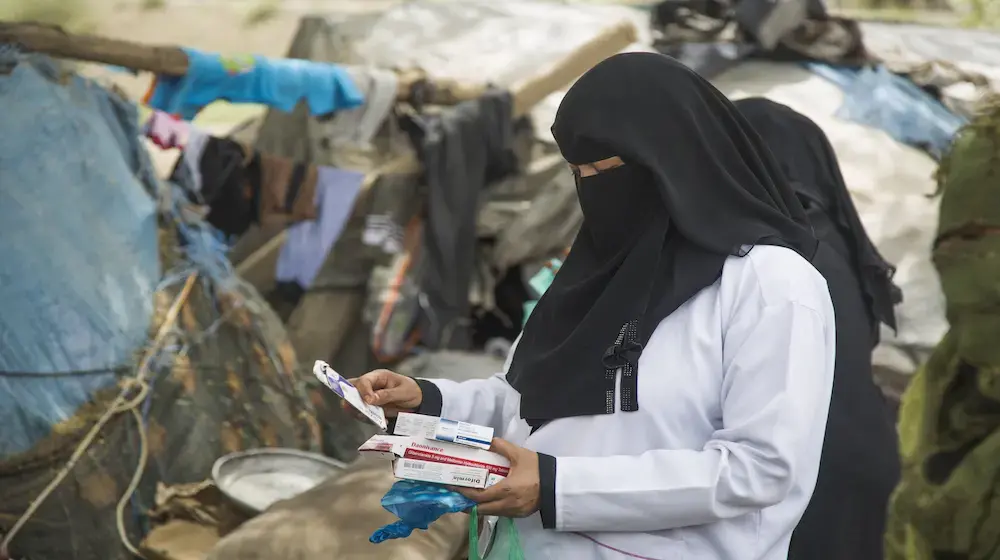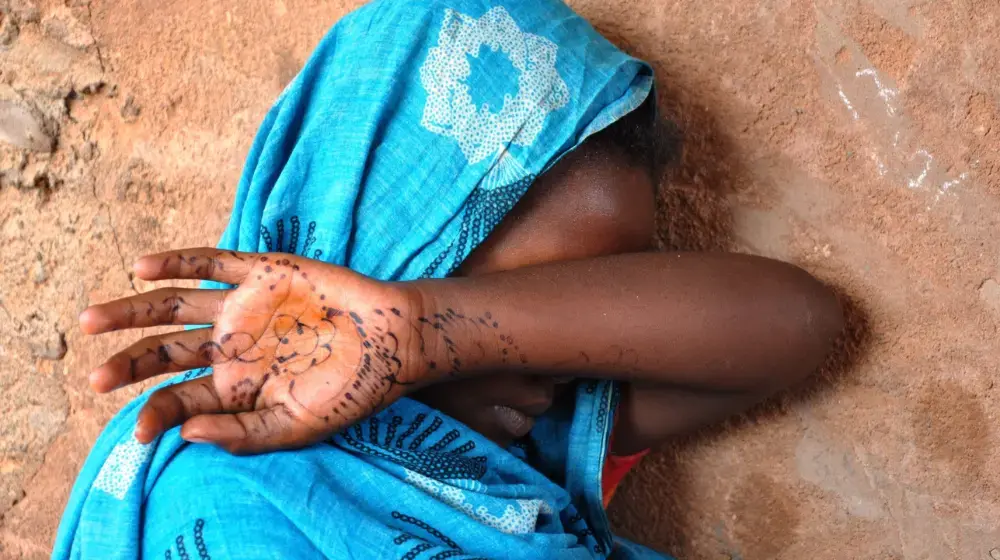"At regional level, UNFPA participates in the WHO regional crisis management group and sub-working groups (risk communication and community engagement; humanitarian settings and displaced population) and co-chairs the regional inter-agency gender theme group and its GBV Covid-19 sub-working group, ensuring integration of GBV within health. Country offices are working closely with other UN agencies, governments, and other partners for the continuation of services and safeguard gains in SRH and GBV. UNFPA is engaged through the UN Country Team coordination mechanisms and supports the respective national Covid-19 Preparedness and Response Plans. These ensure prioritization of SRH and GBV concerns and to look beyond the immediate impacts of the pandemic."
"In humanitarian contexts, UNFPA leads the GBV sub-cluster coordination and sexual and reproductive health sub-working groups under the health cluster. Country offices are also coordinating with the logistics clusters for shipment of humanitarian relief supplies. UNFPA supports Covid-19 Humanitarian Operation Cells, or similar mechanisms, to address service delivery constraints and advocate for access. Covid-19 impact analysis also looks into emerging challenges for continued humanitarian SRH and GBV service provision, which are affected by funding priorities for Covid-19, operational challenges including physical access, and temporary closure of service delivery points."
"Tunisia: UNFPA established and co-leads the SRH and Vaccination Task Force with the Ministry of Health and key
stakeholders for the continuity of SRH and vaccination as part of the essential health services package."
"Continuity of SRH interventions, including protection of health workforce 1"
"UNFPA Country Offices have supported continuity of sexual and reproductive health (SRH) interventions by:
- Procuring PPE for frontline healthcare workers delivering both COVID-19 and non-COVID-19 related SRH and GBV services (medical masks, gloves, goggles) in response to increased demand by national counterparts;
- Training of frontline healthcare workers, including provision of infection, prevention and control (IPC) measures in health facilities, rolling-out standard operating procedures and guidance for COVID-19, with regard to pregnant women/delivery, and adaptation of training packages including on normal deliveries and c-sections;
- Disseminating relevant information, education and communication materials in line with WHO guidelines;
- Establishing alternative delivery modalities (e.g. mobile outreach and home visits in Palestine) where SRH services have been shut down or severely curtailed;
- Advocating with stakeholders for continuity of services (Jordan), awareness-raising and information sharing; and
- Conducting assessments of impact of COVID-19 on SRH services with concern of countries with fragile health systems, which will impact service provision and cause significant immediate and secondary effects."





